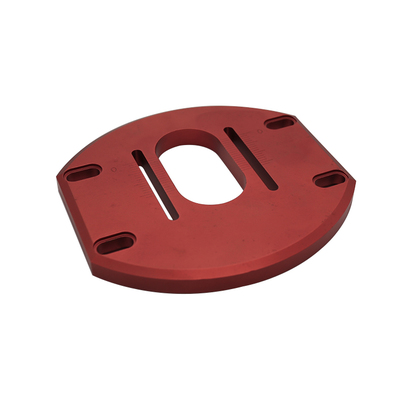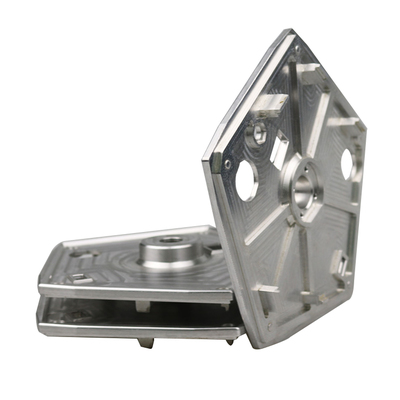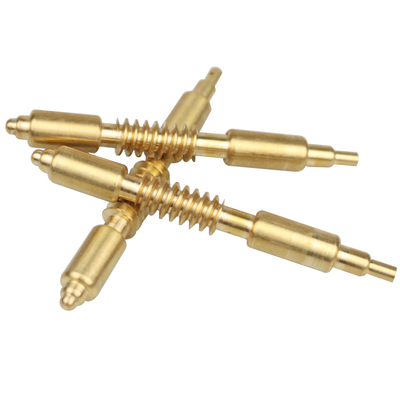Relative Comparison Of Anodizing And Hard Oxidation
Relative Comparison Of Anodizing And Hard Oxidation
| Aluminum alloy and hard film Anodized film is obtained from aluminum material as anode. Aluminum alloy material has a great influence on the performance of film. |
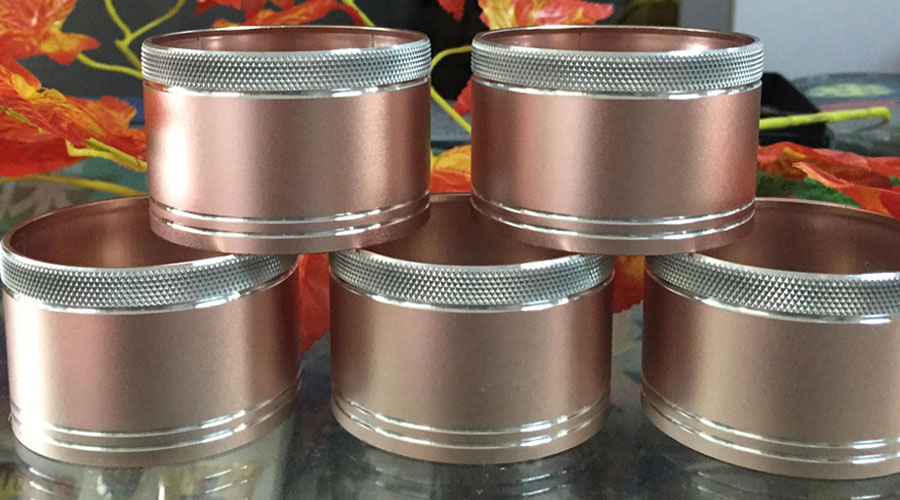
The hard-oxidized film is mostly around 50 dgree, compared with 10 dgree Of the ordinary oxide film, it can better reflect the properties of the material, and the performance of the film is different.
Because aluminum alloys with high copper content are prone to form CuAl2 compounds, this compound dissolves faster during oxidation and is extremely easy to burn out aluminum parts. Therefore, it is generally not suitable to use a low-concentration sulfuric acid electrolyte, and it must be oxidized at a high concentration (H2SO4 at 300-400g / L) or treated by AC / DC superposition method.
- a. Different application occasions: ordinary oxidation is suitable for decoration, while hard oxidation is mainly for function, and it is generally used for wear-resistant and electric-resistant occasions. These are more performance comparisons that we usually use, and there are many other differences. Given the limited level, we cannot go deeper.
- b. Film thickness: Hard oxide generally has a film thickness of> 15 μm, which is too low to meet the hardness requirements, while ordinary oxidation thickness is relatively thin.
- c. Current / voltage difference: ordinary oxidation current density is generally: 1-1.5A / dm2; while hard oxidation: 1.5-3A / dm2 is the difference in operating conditions. Positively say the difference in performance of the lower film layer:
- d. Surface state: The ordinary oxidized surface is flat, while the hard oxidized surface is rough.
- e. Porosity is different: ordinary oxidation porosity is high, while hard oxidation porosity is low.
- f. Concentration difference: general oxidation is generally about 20%, and hard is generally 15% or less.
- g. Different temperature: Normally about 18-22 ℃, with additives can reach 30 ℃, high temperature is prone to powder or crack; hard oxidation is generally below 5 ℃, relatively speaking, the lower the temperature, the higher the hardness.
Link to this article: Relative Comparison Of Anodizing And Hard Oxidation
Reprint Statement: If there are no special instructions, all articles on this site are original. Please indicate the source for reprinting:https://www.cncmachiningptj.com/,thanks!
 PTJ® provides a full range of Custom Precision cnc machining china services.ISO 9001:2015 &AS-9100 certified. 3, 4 and 5-axis rapid precision CNC machining services including milling, turning to customer specifications,Capable of metal & plastic machined parts with +/-0.005 mm tolerance.Secondary services include CNC and conventional grinding, drilling,die casting,sheet metal and stamping.Providing prototypes, full production runs, technical support and full inspection.Serves the automotive, aerospace, mold&fixture,led lighting,medical,bicycle, and consumer electronics industries. On-time delivery.Tell us a little about your project’s budget and expected delivery time. We will strategize with you to provide the most cost-effective services to help you reach your target,Welcome to Contact us ( sales@pintejin.com ) directly for your new project.
PTJ® provides a full range of Custom Precision cnc machining china services.ISO 9001:2015 &AS-9100 certified. 3, 4 and 5-axis rapid precision CNC machining services including milling, turning to customer specifications,Capable of metal & plastic machined parts with +/-0.005 mm tolerance.Secondary services include CNC and conventional grinding, drilling,die casting,sheet metal and stamping.Providing prototypes, full production runs, technical support and full inspection.Serves the automotive, aerospace, mold&fixture,led lighting,medical,bicycle, and consumer electronics industries. On-time delivery.Tell us a little about your project’s budget and expected delivery time. We will strategize with you to provide the most cost-effective services to help you reach your target,Welcome to Contact us ( sales@pintejin.com ) directly for your new project.
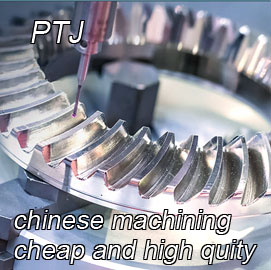
- 5 Axis Machining
- Cnc Milling
- Cnc Turning
- Machining Industries
- Machining Process
- Surface Treatment
- Metal Machining
- Plastic Machining
- Powder Metallurgy Mold
- Die Casting
- Parts Gallery
- Auto Metal Parts
- Machinery Parts
- LED Heatsink
- Building Parts
- Mobile Parts
- Medical Parts
- Electronic Parts
- Tailored Machining
- Bicycle Parts
- Aluminum Machining
- Titanium Machining
- Stainless Steel Machining
- Copper Machining
- Brass Machining
- Super Alloy Machining
- Peek Machining
- UHMW Machining
- Unilate Machining
- PA6 Machining
- PPS Machining
- Teflon Machining
- Inconel Machining
- Tool Steel Machining
- More Material

